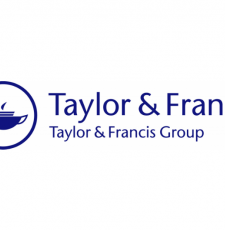
EIFL and our partner, the Association of Electronic Libraries in Kosova (AELK) participated in a public consultation organized by the Ministry of Culture, Youth and Sports of the Republic of Kosovo on the new draft copyright law.
EIFL and AELK submitted comments on the new draft law. Our comments concerned three areas: compliance with the Marrakesh Treaty for persons with print disabilities, exceptions for libraries, and the three-step test (that sets conditions for the use of an exception).
Compliance with the Marrakesh Treaty for persons with print disabilities
Although Article 1(2) of the draft law declares that the law is in full compliance with the EU Marrakesh Directive and Regulation, Article 57 does not comply in four critical aspects: the article applies only to a beneficiary person (not a person acting on their behalf, such as a family member or a caregiver); authorized entities, such as libraries, are not explicitly granted permission to make accessible format copies; and there is no recourse to arbitration or other legal remedy if a technological measure, such as password or copy protection system, prevents an authorized entity from making an accessible copy.
Importantly, the draft law is silent on the import and export of accessible format copies, a key feature of the Marrakesh Treaty and central to its adoption by WIPO member states and its subsequent success. We appreciate that the Republic of Kosovo cannot currently join the Marrakesh Treaty because it is not a member of WIPO; however, people in Kosovo with print disabilities should not be precluded from benefiting from the international legal framework put in place by Marrakesh and the EU’s implementation of the treaty.
Exceptions for libraries - replacement copies in digital formats
In our comments, we call for the library exception for the purposes of replacing copies that have been lost, destroyed or damaged to include digital formats (Article 48). The exception on preservation (Article 49) sensibly permits copies to be made in any format or medium. Allowing a library to make only photocopies for replacement purposes is unnecessarily restrictive, and creates a confusing and artificial distinction between replacement copies and preservation copies.
Exceptions - remove the three-step test
The three-step test sets certain conditions for the use of an exception. Article 45 states that all the exceptions “may only be applied if they do not conflict with a normal exploitation of works, and if they do not unreasonably prejudice the legitimate interests of authors or other holders of copyright”. We propose to delete Article 45. Importing this language from international agreements, such as the Berne Convention and supra-national legislation, such as European Directives creates significant uncertainty with respect to the use of an exceptions by people. The test is meant to guide legislators in the enactment of statutes; it is not meant to act as a standard that users must meet when applying the statutes. If applied in national law, the additional uncertainty and the potential extra restrictions it might impose are frankly unhelpful for librarians acting in good faith to use the exceptions in the course of their work.
Background
As a potential candidate for European Union (EU) accession, Kosovo undertook to adopt a level of IP protection similar to that existing in the EU (Stabilisation and Association Agreement concluded with the EU in 2016). The approximation of domestic legislation with EU law is one of the main pillars leading Kosovo towards European integration. Dialogue on the process and implementation takes place at the Ministry of European Integration (Sub-committee on Internal Market and Competition).
Consequently the Draft Law on Copyrights and Related Rights (2022) sets out to be in full compliance with 16 EU Directives and Regulations in the field of copyright and related rights including the Rental and Lending Right Directive (1992), Information Society Directive (2001), Orphan Works directive (2012), Marrakesh Directive and Regulation (2017), and the Directive on copyright and related rights in the Digital Single Market (2019).
Once this large body of law is domesticated in Kosovo, a programme of training and familiarization will be necessary in order for the library community to become aware of their rights and responsibilities under the new law.
AELK and EIFL’s comments on the Draft Law on Copyrights and Related Rights (2022).
SHARE / PRINT









